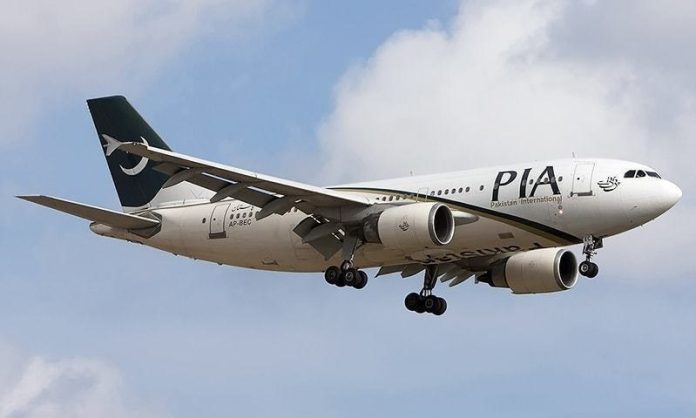By Ali Imran
ISLAMABAD: The Federal Board of Revenue (FBR) rolled back its decision to freeze Pakistan International Airlines’ (PIA) bank accounts on Thursday. However, it clarified that the reversal did not impede its pursuit of recovery proceedings, signaling a precarious financial situation for the national carrier.
The PIA has repeatedly found itself entangled in a financial crisis, exacerbated by the FBR’s action of freezing 28 of its accounts just a day before. The Pakistan State Oil (PSO) had also issued a stern warning, threatening to suspend oil supplies to the airline if outstanding dues remained unsettled.
These developments unfolded against a visit from the European Union’s Aviation Safety Agency (EASA) team, tasked with assessing flight safety concerns in Pakistan.
Notably, the EASA had previously restricted PIA from operating flights to Europe after a plane crash in Karachi in May 2020 and subsequent revelations by former aviation minister Ghulam Sarwar Khan about questionable qualifications of Pakistani pilots.
FBR’s deputy commissioner for Inland Revenue conveyed, “This office has been directed to withdraw the notice mentioned above and to de-attach the bank accounts of the subject taxpayer with immediate effect.”
Despite this, the board emphasized that removing the attachment did not preclude the pursuit of “recovery proceedings” under Section 14(3) of the Federal Excise Act, 2005, pertaining to unpaid or erroneously refunded duty.
PIA spokesperson Abdullah Khan confirmed the FBR’s directive to unfreeze accounts nationwide, highlighting ongoing communication between the national carrier and FBR’s large tax unit to address the underlying issues.
The financial challenges for PIA have escalated with billions in losses, prompting the government to announce privatization plans and outsourcing airport operations. Last month, the airline faced a severe setback when PSO halted fuel supplies because of unpaid dues, resulting in the cancellation of over 500 flights. Although operations resumed, the government has intensified decisions regarding PIA’s future.
Furthermore, the Cabinet’s Economic Coordination Committee (ECC) declined approval for an emergency supplementary grant of Rs7.3 billion per a request from the Aviation Ministry.
Reports from Bloomberg indicate that PIA’s liabilities amount to a staggering Rs743 billion (approximately $2.5 billion), surpassing its total assets by five times. With only 19 out of 34 aircraft operational, and losses reaching Rs86 billion last year, the estimate for this year stands at a monumental Rs153 billion. Privatization or grounding the airline appears increasingly inevitable, with the government contemplating the sale of at least 51% shares along with management control.
Recent directives include the cancellation of scheduled off days for PIA employees, with the chief executive urging senior officials to expedite tasks related to the airline’s divestment process. As turbulence continues to envelop PIA, the airline’s fate remains precarious, teetering on the edge of financial instability and the government’s ongoing reformative measures.





